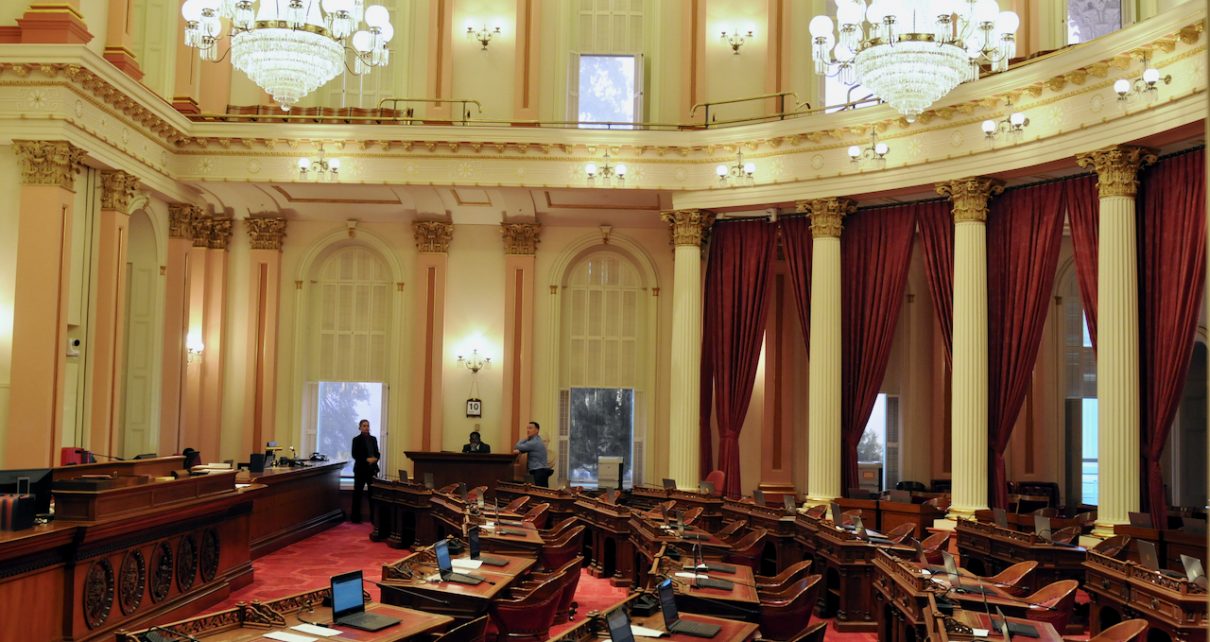
California Senate Chambers. (Photo: Kevin Sanders for California Globe)
Canon of Statutory Construction — Expressio Unius
We start with the presumption that the Legislature drafts its bills carefully and intentionally
By Chris Micheli, October 25, 2022 6:35 am
For purposes of statutory construction, the courts and bill drafters use a series of “canons” to guide them. These include textual canons (intrinsic aids), linguistic presumptions and grammatical conventions, substantive canons, and extrinsic aids. It is impossible to list them all, but there are some common canons, and those are most useful for legislative drafting.
We start with the presumption that the Legislature drafts its bills carefully and intentionally. Because of this presumption, the usual approach of the judicial branch is to narrow statutes rather than expand them, and the courts are less activist in their interpretation.
Expressio Unius provides that a list of words with no catch-all means that the inclusion of specific words suggests the exclusion of other words. The full Latin phrase is Expressio unius est exclusio alterius which means that “the express mention of one thing excludes all others.”.
In other words, when a statute includes a list of specific items, that list is presumed to be exclusive and, therefore, the statute applies only to the listed items and not to other that are not listed.
However, note that, if the list starts with a phrase like “at a minimum” or “including,” or the list ends with a general catch-all term, then it is more likely that a court will interpret the list as illustrating the types of things the statute applies to and not as an exclusive list.
- Service of Summons in California Civil Actions - December 11, 2024
- Sunset Clause Versus Repeal Clause - December 10, 2024
- Describing a Spot Bill - December 9, 2024




One thought on “Canon of Statutory Construction — Expressio Unius”